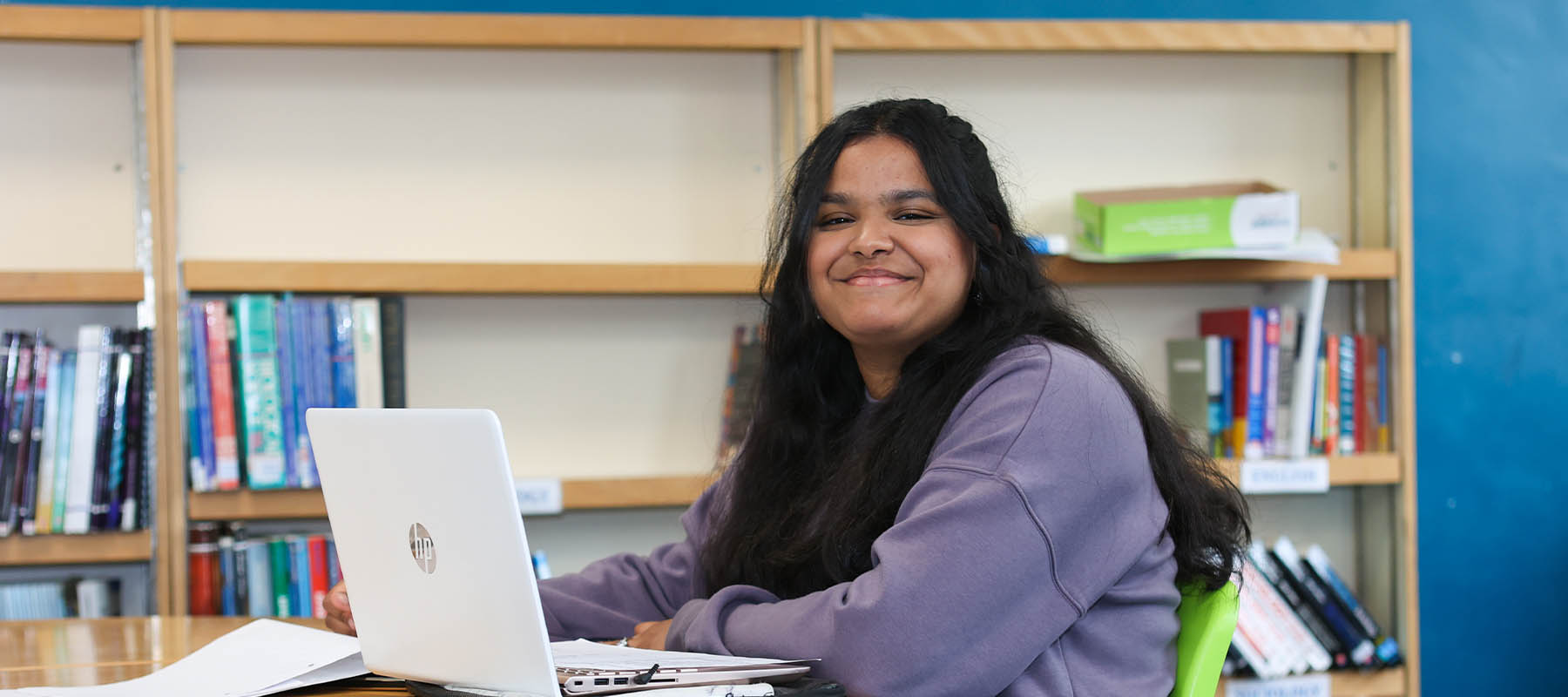Further Maths
The vision of the Mathematics Department is to deliver an educational experience of the highest quality that encourages and develops independent thinking and problem-solving skills, thereby helping students prepare for successful roles in a dynamic world.
The Mathematics Department adopts the White Rose Scheme of Learning at KS3 & KS4. The aim of this course is to develop a culture of deep understanding, confidence, and competence in Maths – a culture that produces strong, secure learning and real progress. No matter what their starting points, we strive to facilitate learners to achieve excellence. We believe everyone can do Maths. As we prove this to pupils, we’re hoping to shape assured, happy and resilient mathematicians who relish the challenge of Maths and become independent, reflective thinkers, whose skills not only liberate them in Maths but also support them across the curriculum. We are committed to working together to be and give the absolute best, and to make a difference to every pupil.
Course Details
At Key Stage 5 we offer both A Level Mathematics and A Level Further Mathematics and students follow the Edexcel Syllabus.
Course Description
This Pearson Edexcel Level 3 Advanced GCE in Further Mathematics builds on the skills, knowledge and understanding set out in the whole GCSE subject content for mathematics and the subject content for the Pearson Edexcel Level 3 Advanced Subsidiary and Advanced GCE Mathematics qualifications. Assessments will be designed to reward students for demonstrating the ability to provide responses that draw together different areas of their knowledge, skills and understanding from across the full course of study for the AS further mathematics qualification and also from across the AS Mathematics qualification. Problem solving, proof and mathematical modelling will be assessed in further mathematics in the context of the wider knowledge which students taking A level further mathematics will have studied.
The Pearson Edexcel Level 3 Advanced GCE in Further Mathematics consists of four externally-examined papers.
Students must complete all assessments in May/June in year 13.
Programme of Study
Pure Mathematics
- Proof
- Complex Numbers
- Matrices
- Further Algebra and Functions
- Further Calculus
- Further Vectors
- Polar Coordinates
- Hyperbolic Functions
- Differential Equations
Further Mathematics Option 1
Students take one of the following four options:
- A: further Pure Mathematics 1
- B: Further Statistics 1
- C: Further Mechanics 1
- D: Decision Mathematics 1
Further Mathematics Option 2
Students take one of the following seven options:
- A: Further Pure Mathematics 2
- B: Further Statistics 1
- C: Further Mechanics 1
- D: Decision Mathematics 1
- E: Further Statistics 2
- F: Further Mechanics 2
- G: Decision Mathematics 2
Assessment
- Paper 1 and Paper 2 may contain questions on any topics from the Pure Mathematics content.
- Students must answer all questions.
- Paper 3 and Paper 4, students answer all the questions for the topic they opted for.
- Calculators can be used in the assessment.
Paper 1: Core Pure Mathematics 1 (9FMO/01)
- 75 marks
- 1 hour 30 minutes
- 25% of overall A Level
Paper 2: Core Pure Mathematics 2 (9FMO/02)
- 75 marks
- 1 hour 30 minutes
- 25% of overall A Level
Paper 3: Further Mathematics Option 1 (9FMO/3A-3D)
- 75 marks
- 1 hour 30 minutes
- 25% of overall A Level
Paper 4: Further Mathematics Option 2 (9FMO/4A-4G)
- 75 marks
- 1 hour 30 minutes
- 25% of overall A Level
Home Learning
The Mathematics Department subscribes to the Integral website and tasks will be set on this platform in addition to other tasks set by class teachers.
Where can Mathematics take you
Maths is one of the most respected subjects to achieve a qualification in, and the breadth of applications is immense. Mathematics underpins most of science, technology and engineering and is also important in areas as diverse as business, law, nutrition, sports science and psychology. There are many opportunities to use Maths to make a difference in society, for example through the analysis involved in medical research, developing new technology, modelling epidemics or in the study of patterns of criminal activity to identify trends. Studying Mathematics develops problem solving and logic skills, but also provides opportunities to develop team-working skills, resilience, effective communication and the ability to use your own initiative.
Further Study
Degrees in
- Mathematics
- Accounting
- Economics
- Biology
- Engineering
- Business and Management
- Politics
- Statistics
Careers
- Finance– Actuarial Work, Accountancy, Financial Modelling, Investment Banking
- Computing– Games Design, Internet Security, Telecommunications
- Mathematical Biology-Population Modelling, Epidemics and Vaccination
- Engineering– Aircraft Modelling, Fluid Flows, Acoustic Engineering, Quantity Surveyor, Planner
- Teaching and Lecturing
- Statistics– Medical Statistics, Market Research, Government Statistics
- Business– Logistics, Traffic Planning, Project Management, Business Consultancy
How can parents support their child’s learning
Ensure that your child uses the internet learning tutorials effectively, possibly sitting with them and learning the Mathematics skills together.
Always try to take opportunities to use Mathematics and problem solving in real life contexts with your child: best buys at the supermarket; exchange rates for currency; conversion of measurements; utility bills; interest repayments on loans, mortgages or interest on investments; percentage increase/decrease; card/dice/board games; code-breaking etc.
Useful Links
- Integral Maths – https://integralmaths.org/
- Physics and Maths Tutor – https://www.physicsandmathstutor.com/
For more information contact Mr Timpson, Head of Mathematics, Townsend Church of England School.


